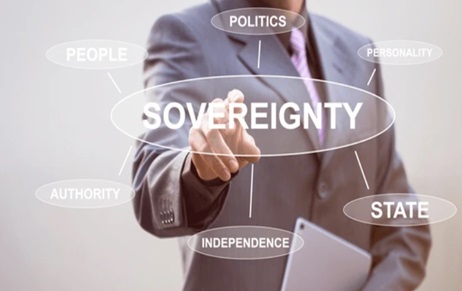Bodin argued that sovereignty is indivisible and absolute and that it should be concentrated in…
Copyfight or Copyright?- An analysis on the legal scenario of parallel importation
On 19 March 2013, in a closely divided 6-3 judgment in Kirtsaeng v. John Wiley, the U.S. Supreme Court held that copyright law could not be used to prevent parallel importation into the USA for works that are made outside the USA.
The facts of the case are as follows:
In 1997, a student named Supap Kirtsaeng, from Thailand arrived at Cornell University, the U.S. to study. He noticed that the textbooks in the U.S. were considerably more expensive than the same textbooks bought abroad. He started his own import business wherein friends and family, from back home, sent him textbooks, which he resold in the U.S. at a profit. On eBay, according to the evidence procured, he made a profit of $ 1.2 million on selling the imported textbooks.
When John Wiley, a well-known publisher in the U.S. came to know about this venture of Kirtsaeng, he sued him for copyright infringement. His stance was clear- consumers would prefer low-cost books from Thailand over the expensive textbooks he sold. He made sales through the products manufactured abroad but the re-sale of his paid products was not acceptable to him.
Kirtsaeng referred to the first-sales doctrine, mentioned in the U.S. copyright laws which enable residents of the U.S. to resell legally obtained objects without asking for the copyright owner’s permission. This is enshrined in Section 109 of the U.S. Copyright Act which states: “The owner of a particular copy or phone record lawfully made under this title, or any person authorized by such owner, is entitled, without the authority of the copyright owner, to sell or otherwise dispose of the possession of that copy of phone record.” This is called a ‘right of the first sale’. In simpler terms, if you are the copyright holder, you get to control only the first sale of your copyrighted article. If there is legitimate re-sale after the first sale, there is no legal recourse that can be taken.
The High Court held that purchasers have the right to re-sell and distribute that copyrighted article without the consent of the copyright holder, and unauthorized parties can import the same into the U.S., regardless of the fact whether the copy was manufactured in U.S. or abroad. This wide interpretation of Section 109 of the U.S. Copyright Act served as a limitation to Section 602(a)(1) of the same Act which mainly deterred gray market imports. Section 602(a)(1) states: “Importation into the United States, without the authority of the owner of the copyright of copies of a work that have been acquired outside the United States is an infringement of the exclusive right to distribute copies [of the work].”
With reference to this, Section 17 of the same Act states that the owner of copies ‘lawfully made under this title’ may sell or distribute their legally acquired copies without the copyright holder’s permission.
The main question raised in this case was whether the phrase ‘lawfully made under this title’ meant lawfully made in the United States’.
The opinion of the Majority
The Majority Bench, with 6-3, reversed the Second Circuit’s decision holding that the first sale doctrine did not apply to foreign-made goods. They emphasized that the first sale does apply to works made abroad if they have been imported by or with the permission of the copyright holder.
Further, the key phrase which was under fire did not have any geographical implication but should be interpreted on the provision per se. Further, they stated that copyright infringement under Section 109(a) would essentially refer to libraries circulating books printer abroad without the copyright holder’s consent, book stores to sell such books, for consumers to sell their used foreign-made cars containing automobile software, for consumers or others to re-sell other foreign-made goods that come in copyrighted packaging, for museums to publicly display foreign works without consent.
Coming again to the key phrase ‘lawfully made in accordance with the title’ purely meant ‘made in accordance with the Copyright Act’. So, interpreting Section 109(a)- ‘first sale doctrine’ would apply to copyrighted work as long as their manufacture met the requirements of U.S. copyright law. Again, essentially, the focus was on whether the copies were manufactured abroad with the permission of the copyright holder.
Interestingly, with this decision, copyright law and trademark law both now stand at the same juncture with respect to the goods which are paid for by the original copyright owner. In simpler terms, copyright & trademark law cannot keep a check on the legitimately made copies for which the copyright holder has been paid and keeping a track on the first sale made.
About the Author: Ms. Madhuri Iyer, Trade Mark Attorney at Khurana & Khurana and can be reached at Madhuri@khuranaandkhurana.com
Follow us on Twitter: @KnKIPLaw



